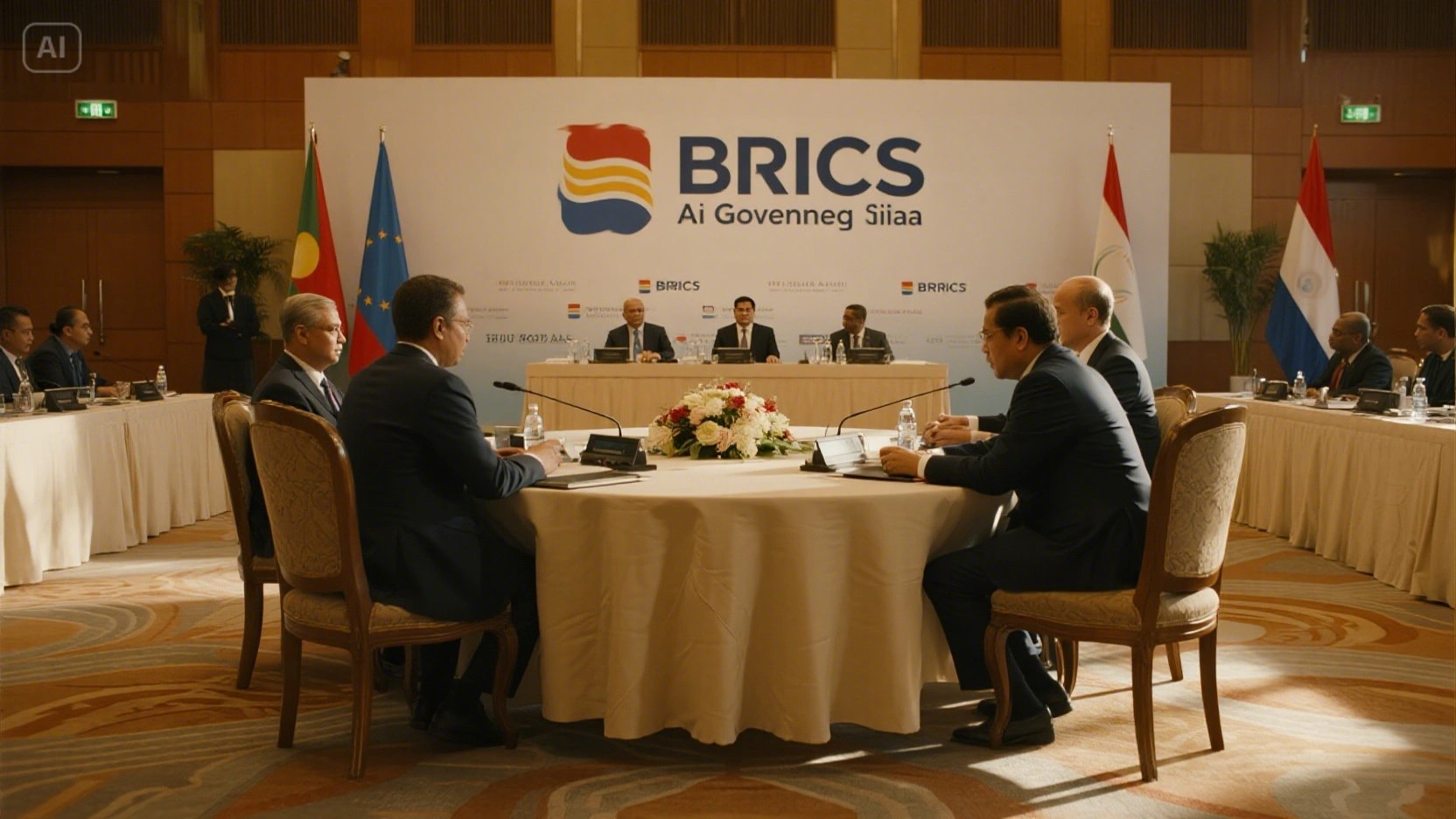On July 2025, at the 17th BRICS Summit in Rio de Janeiro, two apparently dissimilar but extremely interdependent processes took place: Indonesia officially became a BRICS member, and the group appended a joint official statement on the AI governance of the Global South. Taken together, they mark a turning point in the development of world geopolitics and digital policy. BRICS should be looked upon with confidence and careful optimism as it is not only an emerging geopolitical force but also a technopolitical force with Southeast Asia now better represented.
Why Indonesia’s Entry Matters
Indonesia is not a chance member in BRICS rather it is a logical next member in many senses. In an age of division between South Asia, and the Pacific, Indonesia is both geographically and ideologically well-placed as a bridge between the two. With its population of almost 290 million, strong democracy (but with its problems), and one of the fastest-growing digital economies in the entire Asia, Indonesia is poised to take up its mantle. This boosts of credentials in BRICS more than a symbolic association of nations that will be considered multipolar association of nations and not a club of countries, which are authoritarian or semi-authoritarian.
Indonesia can be much connected to the West and the East unlike other former members. It is a part of G20, ensues military associations with the U.S. and is assimilated in various ASEAN digital structures. By becoming a BRICS member, Indonesia contributes to the institutional variety, pushing the block to be more inclusive and less strict in its position.
However, what is more important, its incorporation will give BRICS better options to move not only against NATO or IMF, but to establish new rules in technology, finance, and trade, where the Global South has long been denied such agency.
AI Governance
It is arguably too early to proclaim the BRICS Rio Declaration on AI Governance as competitive over the legal eloquence of the EU proposed AI Act, but the very fact that this is the first deep structured common position of the emerging economies toward artificial intelligence is representative of its own legal merit. This is historical. It aims at establishing consensus-driven guidelines on data sovereignty, ethical algorithm development, and AI safety, and not to ape Western regulatory frameworks.
The statement also reflects the priorities of the Global South: a digital gap in infrastructure, a threat of workforce automation, linguistic diversity, and Western AI biases. Instead of being placed in the position of catching up, BRICS appears to be designing its own route which is resistant to techno-authoritarian and commercial Silicon-Valley logics.
This is where Indonesia comes in even more important. With a massive user base and digital connectivity and cultural depths, Indonesia is one of the most digitally interconnected Muslim-majority countries in the world and a trendsetter when it comes to tech start-ups in Southeast Asia, which denote not only scale but also cultural specifics to the AI development. Its involvement may lead BRICS towards more regionalized, multilingual and inclusive data systems that do not eliminate, but represent regional identities.
The Pitfalls of “Tech Sovereignty” Without Accountability
Precaution is, however, needed. Rhetorics of AI sovereignty is powerful on the face of it, and it can be a disguise of runaway digital authoritarianism. The two heavyweight members of the BRICS, Russia and China have a history of surveillance, censorship, and population control enabled by AI.
The BRICS AI agreement is not free of the risk of turning into a techno-nationalist club capitalizing on local empowerment as a mask to policies that stave off the modern world. In case Indonesia and Brazil that are both democratic countries with vibrant civil societies fail to assert themselves, the governance paradigm with this group of countries will start being more centralized than decentralized.
In addition, as opposed to the EU, BRICS does not have the institutional maturity to control, execute, or perfect its statements. Europe does not have a BRICS with the European Data Protection Board. A significant part of the success that the Rio declaration may earn will be based on the ability of the member states to move on the technical regulation, open datasets, shared innovation, and legal protection against misuse.
BRICS vs. the West
Among the least realistic drafts in the media is to regard the AI drive by BRICS countries as a counter to Western, as we are engaged in a contest of values captured in binary terminology. This, however, overlooks two significant facts.
Looming in the first place is that Western AI regulation is by no means coherent. The US continues to have no federal law of AI. EU AI Act is a progressive approach but is met by resistance by business and other non-European countries who fear trade ceilings and cost of compliance. In the meanwhile, the tech monopolies such as OpenAI and Google are hardly answerable to the sovereign states beyond the West.
Second, the world, not to mention the BRICS, is becoming increasingly concerned with the creation of hybrid structures that combine openness and sovereignty, innovation with ethics. Southeast Asia, Latin America and Africa are no longer passive markets of tech. They are demanding to have control of their data, creating calls of algorithmic accountability, and trying out native AI applications.
The AI declaration of BRICS, thus, must not be seen as the rejection of the West but rather viewed as an overall decentralization of digital power. In that respect, inclusion of Indonesia brings the additional legitimacy to the group to speak about most humanity, the one residing in non-Western, non-AI producing world.








